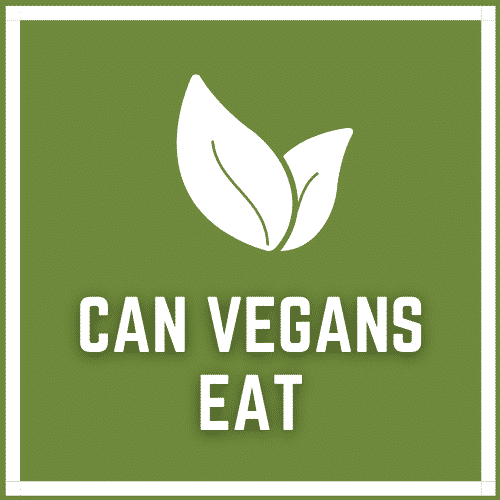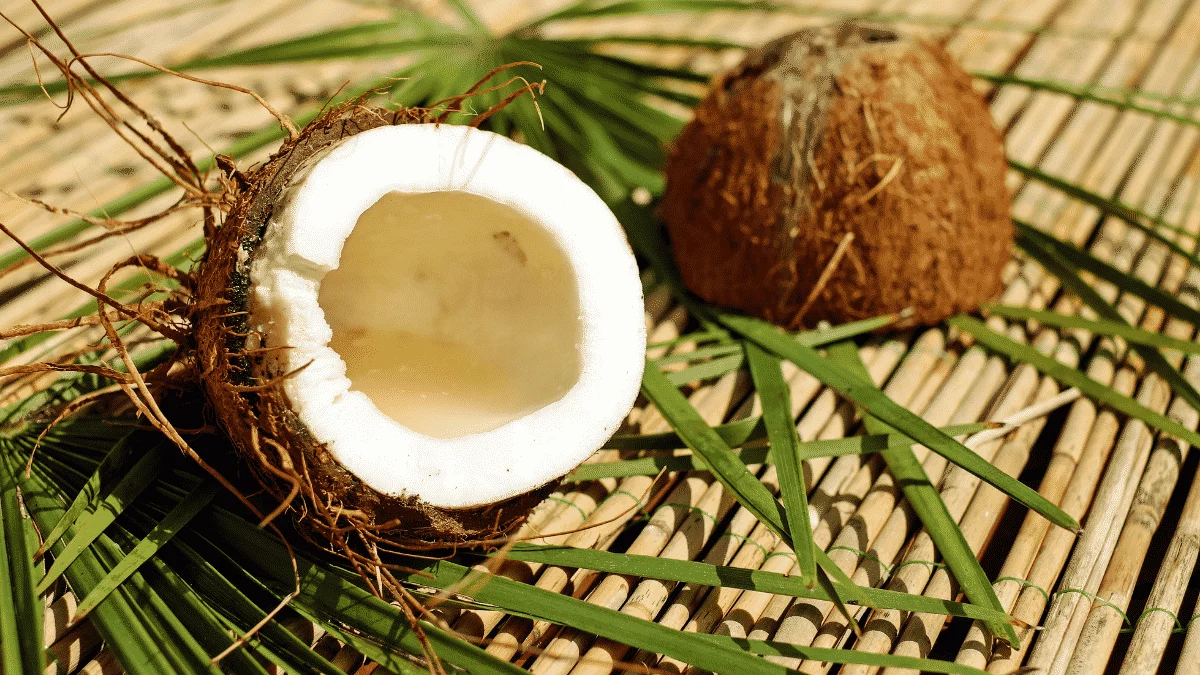Answer: There is no straightforward answer since the coconuts per se are vegan. Though you have to consider how they are harvested. Some coconut plantations use animals as a labor force under questionable circumstances.

Table of Contents
Can Vegans Eat Coconut?
The first thing to pop into your mind is ‘of course, vegans can eat coconut.’ But the answer is not that simple. You may think that coconut is vegan since it’s a fruit. In fact, it is a drupe, which is a simple fleshy fruit that usually contains a single seed. A logical conclusion would be: since it’s not an animal or produced one, it must be vegan. You can’t be more wrong.
Veganism is not only against the usage of animals and their products in your diet. It has so many other aspects that must be met for a person to be a dedicated vegan. Your actions should protect animals and the environment, and as an additional consequence, benefit your health. You need to contribute to protecting the environment on one side and animals on the other side.
Why Coconuts Aren’t Vegan
Coconuts often are not vegan. This is due to two main reasons:
- the process of plantation
- animal slavery
Animal slavery?! Now you’re asking yourself what that has to do with the healthy little coconut you drank at the beach on your last vacation in Thailand.
As I said above, the response to whether the coconut is vegan or not is not as simple. Let’s start with the process of planting and picking the coconuts.
Coconut Plantations
The biggest coconut producers are in Asian countries such as Indonesia, the Philippines, India, Sri Lanka, and Thailand. Since coconut market demand is very high worldwide, coconut plantations need to output very fast to meet the target. This often, if not too often, leads to destroying forests to make space for coconut trees.
Deforestation sadly is not the only consequence of this trend. The main problem is the disruption of ecosystems. For example, seabirds cannot nest in coconut trees. The trees they used to nest are destroyed, so they are left without their natural habitat. This has enormous consequences on the ecosystem in the area.
Animal Slavery
I bet you asked yourself while reading the article, how animal slavery is connected to growing coconuts. Prepare yourself; this may lead you to stop consuming your favorite non-dairy drink.
We already disclosed that the market demand for coconut is very high. Can you imagine 61.89 million metric tons of coconut, produced only in 2018, picked only by humans? So what’s cheaper than a human and mechanical laboring force? Animals.
Macaque monkeys are often trained to pick coconut. These cute little animals can pick from 500 to 1200 coconuts during their long day of slavery. This makes them the perfect and free-of-charge laboring force.
Most of them are taken from their mothers while they are still little babies. While being very protective, mothers are often killed in the process. These monkeys are trained in deplorable conditions. Training contains all sources of torture and chaining. Their teeth are often taken out brutally so that they cannot defend themselves.
While working, the animals’ fainting occurs very often, having in mind the torture and poor living conditions. You may think that these people let them rest. NO! They stimulate them with all sorts of caffeine drinks and other consumptives to continue their work.
Does this sound like a very simple and straightforward answer to your question? Having all the above in mind, coconut can hardly be considered vegan food.
Which Coconuts Are Vegan
There’s always an exception to each rule. In this case, let me tell you about vegan coconuts.
You can still consume coconut in your everyday diet. You only need to make sure that you don’t buy products coming from South Asia. I recommend using products from Brazil and the USA. Macaque monkeys don’t live in that part of the world and cannot pick coconut planted in these countries.
However, to be fair, some Asian companies claim not to be using animal slavery in their process of picking coconut. But how can we be sure that people with small plantations who sell their coconut to big companies are not using animals?
Conclusion
We should never assume that there is a straightforward answer. The chase for big and easy money is so overwhelming that several people have lost touch with humanity. While considering if coconuts are vegan, you need to dig deep into the essence of your being. Why you started this journey? Coconuts are vegan per se, but the production often is not. Be careful about which product and from which company you’re buying. The cheapest is not always the right choice. Do your research and avoid companies that don’t want to tell how they produce their product. If you do things this way, you may continue to drink and eat your coconut as much as you want.

